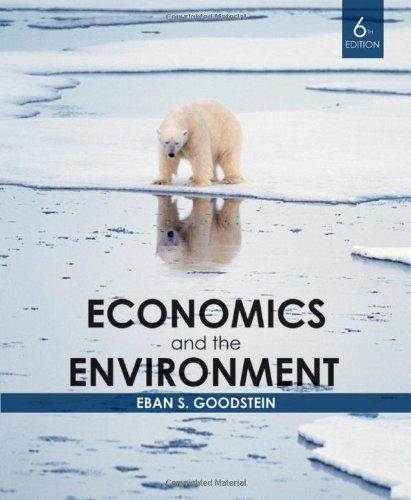Two well-known economists, William Baumol and Alan Blinder, have stated that, in the long run, nothing contributes
Question:
Two well-known economists, William Baumol and Alan Blinder, have stated that, in the long run, ‘‘nothing contributes more to reduction of poverty, to increases in leisure, and to the country’s ability to finance education, public health, environmental improvement and the arts’’ (1991, 356) than the rate of growth of productivity.
1. Define productivity.
2. See if you can verify Baumol and Blinder’s very strong claim (‘‘nothing contributes more . . .’’) through the following exercise. Assume GDP in the United States is $10 trillion and that the labor force remains constant in size and fully employed. Estimate the value of GDP in one year’s time if productivity growth is 3%. What if it were only 2%? How much will GDP fall in two years’ time if productivity growth remains at 2% rather than 3%? In three years?
3. Why might environmental regulation reduce productivity growth?
4. Why might it increase productivity growth?
5. Even if, on balance, environmental regulation has not reduced productivity growth, are negative productivity impacts from regulations something we should still worry about?
Step by Step Answer:







